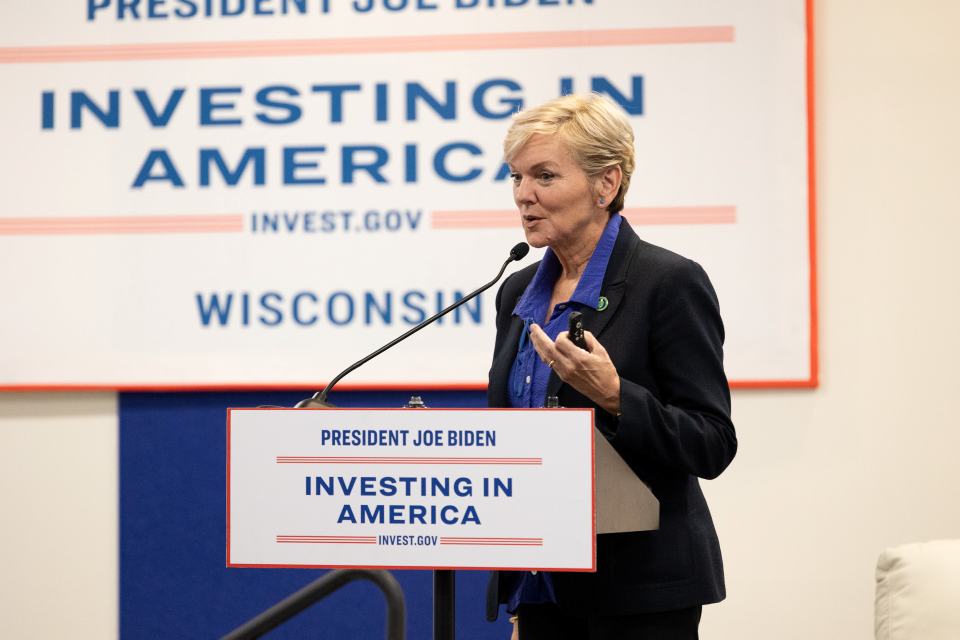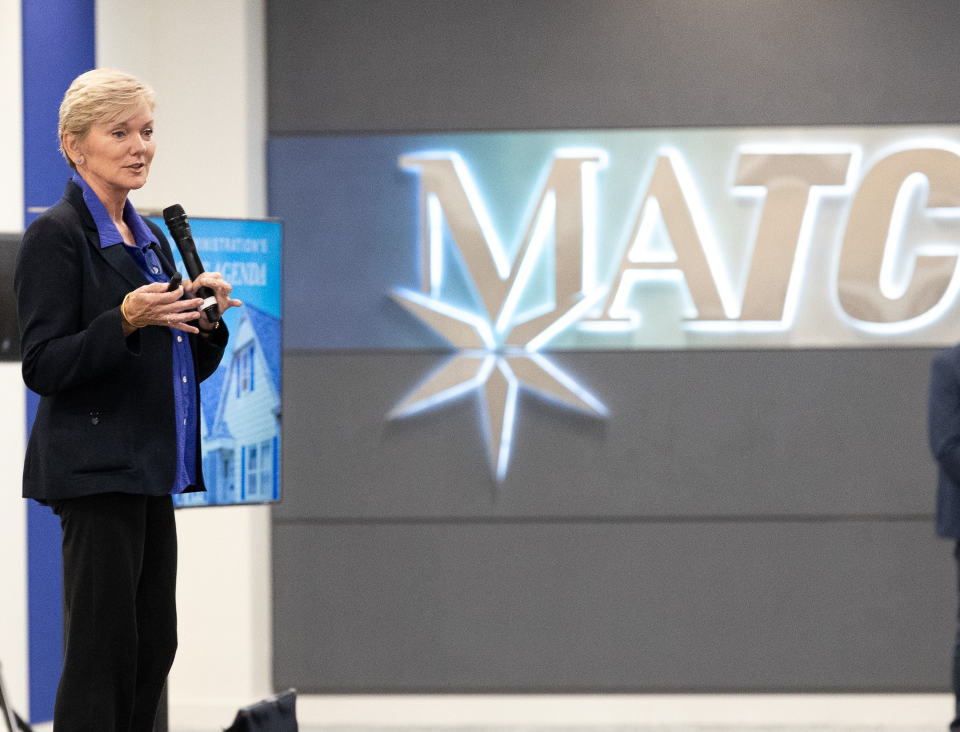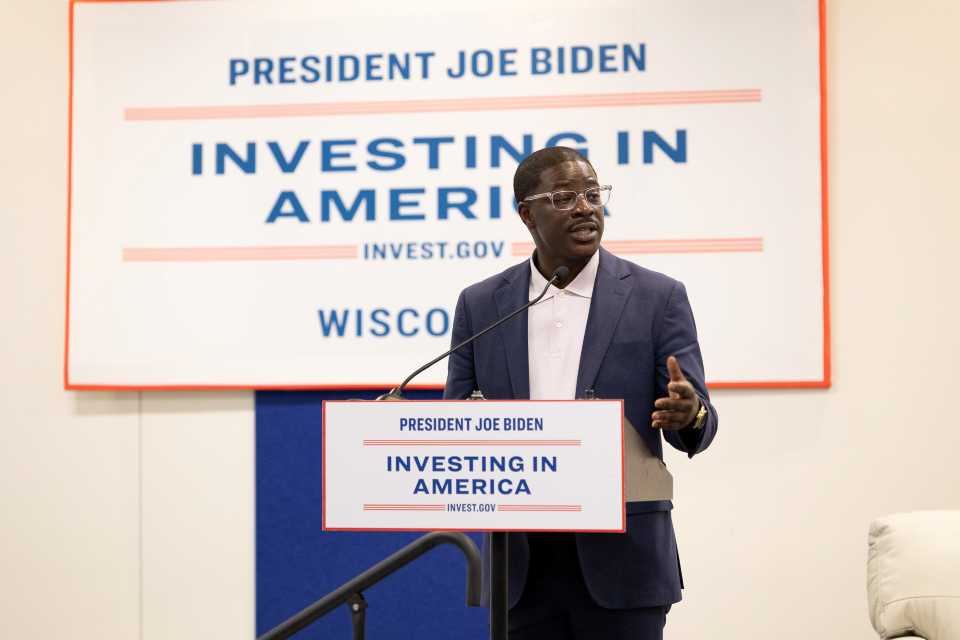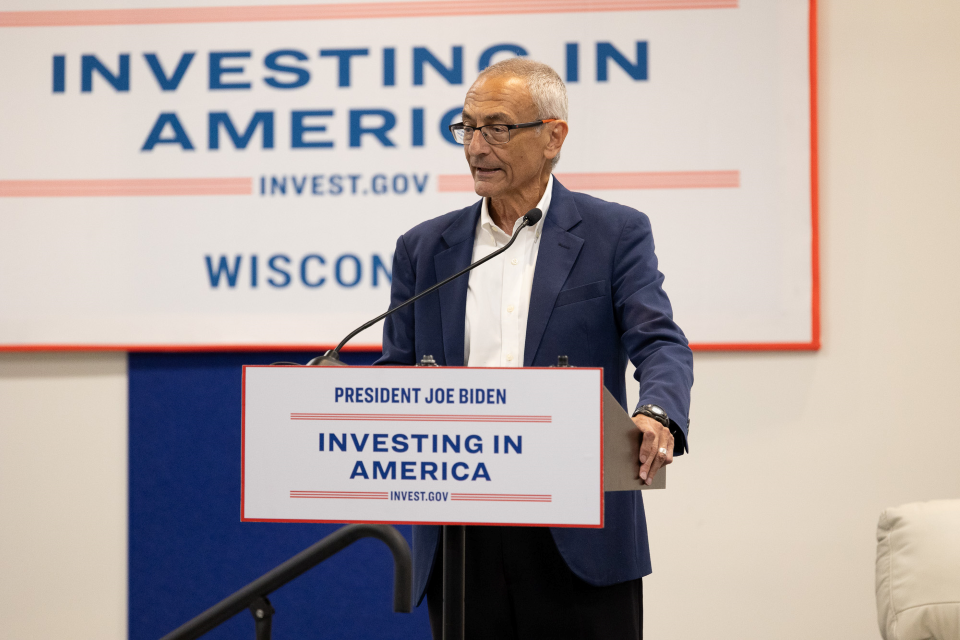Wisconsin is leading the pack of states building up their local workforce and keeping money in the pockets of their residents.
Back in late 2020, Nicholas Hansen had a feeling that heat pumps would be hot.
The South Milwaukee native learned heating, ventilation and air conditioning (HVAC) on the job through a local labor union and in the classroom at Milwaukee Area Technical College.
In December 2020, he started his own residential HVAC business and became a regional resource for the installation and maintenance of heat pumps, an energy-efficient device that keeps cool spaces cool and warm spaces warm.
“I saw that heat pumps could be the future,” Hansen said. “I saw the incentives being offered to get one, and I knew interest could get even bigger.”
He wasn’t wrong.
Heat pump demand is poised to explode after federal, state and city officials gathered at MATC’s Downtown Milwaukee Campus on Friday, August 2, to announce the start of new home energy savings programs.
Wisconsin is the first state in the nation to launch the Home Efficiency (HOMES) rebate program, enabling households at all income levels, especially lower-income households, to save on energy-efficiency improvements such as insulation, air sealing and heat pumps that reduce energy consumption.
U.S. Secretary of Energy Jennifer M. Granholm, along with Wisconsin Gov. Tony Evers and John Podesta, the senior advisor to President Joe Biden for international climate policy, unveiled the specifics of the programs at MATC.
See TV coverage of eventResidents participating in the programs can receive rebates to install efficient, clean energy improvements such as insulation, heat pumps, solar panel, induction ovens and electric vehicle chargers. In turn, the new equipment will help the environment and significantly lower energy bills — nearly $3,800 a year for some Wisconsin residents, Granholm said.
“There is a ton of technology out there to lower energy costs,” Granholm said. “We’re trying to help families save energy and save money.”
For single-family homes, rebates will range between $3,000 and $10,000 depending on the area median income. Multifamily rental properties with low-income tenants are eligible for up to $10,000 in rebates, depending on estimated energy reductions.
“We live here and we know how high energy bills can be,” Milwaukee Mayor Cavalier Johnson said at the event. “This program will help residents keep more of their own money in their own pockets.”
“This is a big deal,” added Milwaukee County Executive David Crowley. ‘This is a really big deal.”
Wisconsin received $75 million for the HOMES program and will get another $75 million this fall for the Home Electrification and Appliance Rebates (HEAR) program, Evers said. Together, the programs are expected to save state residents $1 billion and support 50,000 jobs that pay well, he added.
The jobs will be skilled professionals in the field installing the equipment, along with manufacturing workers producing energy efficient parts and components, Granholm said.
And places like MATC will provide the critical training, Evers said. “We have very strong technical colleges,” he said. “We will be counting on them and the unions to provide training. I have no worry we can meet the needs of our employers.”
“We are a go-to partner for regional businesses and industries to build a diverse talent pipeline, especially in energy fields such as automotive technician, building automated services and electrical power distribution,” said MATC President Dr. Anthony Cruz. “I think this will give us an opportunity to train more individuals and educate more students so they can get into the workforce.”
The rebate programs will be administered by Focus On Energy, which has worked with the state’s Public Service Commission for the past 20 years, said Summer Strand, the commission’s chairperson, who also sat on the panel to discuss the announcement.
Residents can apply for rebates online, Strand said. “We don’t want any barriers to entry,” she said. “If it’s hard, people won’t do it.”
For Hansen, he sees more business coming his way.
“Yes, this is huge,” said Hansen, who attended Friday’s event. “This could be a real blessing. I believe we will see so many positives come from this. It will be very cool to see how this all goes.”
About MATC: As Wisconsin’s largest technical college and one of the most diverse two-year institutions in the Midwest, Milwaukee Area Technical College is a key driver of southeastern Wisconsin’s economy and has provided innovative education in the region since 1912. More than 30,000 students per year attend the college’s four campuses and community-based sites or learn online. MATC offers affordable and accessible education and training opportunities that empower and transform lives in the community. The college offers more than 180 academic programs — many that prepare students for jobs immediately upon completion and others that provide transfer options leading to bachelor’s degrees with more than 40 four-year colleges and universities. Overwhelmingly, MATC graduates build careers and businesses in southeastern Wisconsin. The college is accredited by the Higher Learning Commission.








